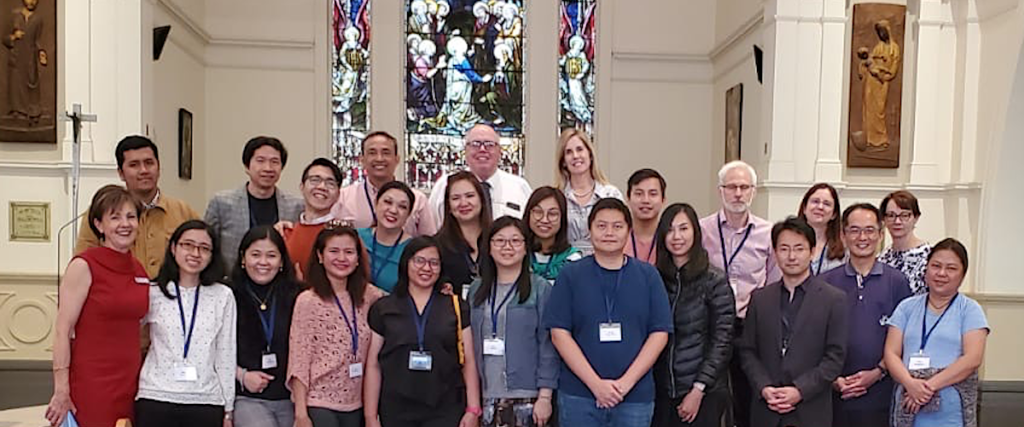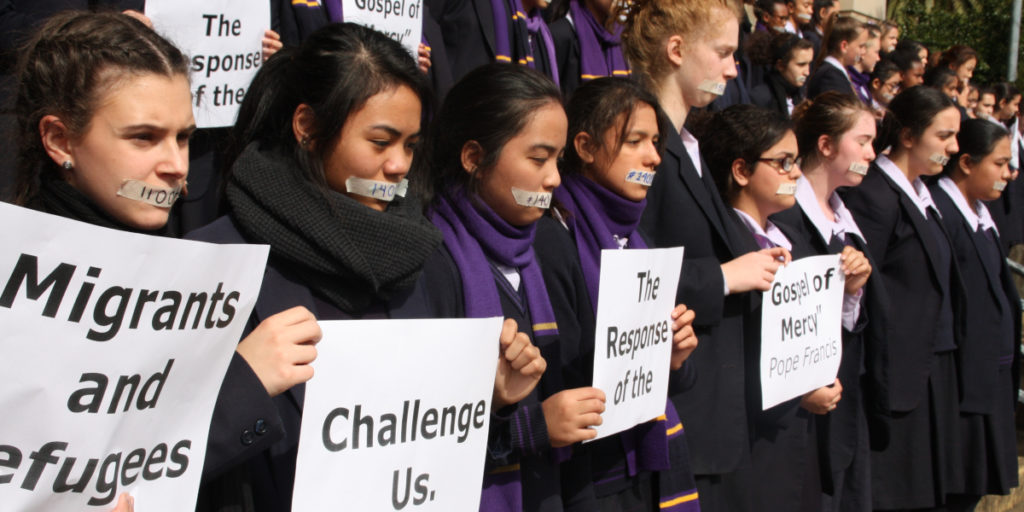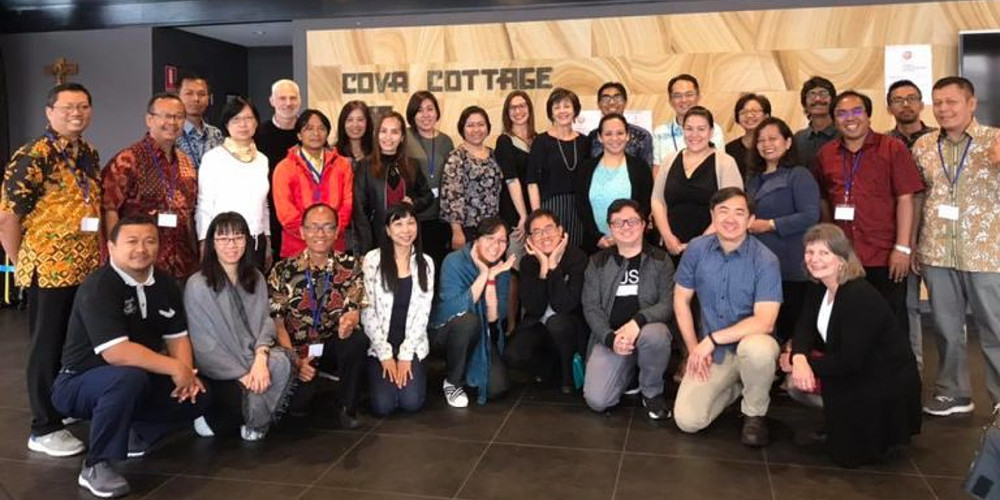The Ignatian Teachers’ Program (ITP) was held on November 11 to 15 at St Ignatius’ College, Riverview in Sydney, Australia. Located near Lane Cove River, St Ignatius’ College has beautiful Jacaranda trees on the campus. Walking along the main building and the rose garden allowed each participant to savour the long tradition of this Jesuit school.
There were 18 participants from the Philippines, Indonesia, Japan, Macau and Hong Kong. Most of them were experienced teachers, with a few school directors, administrators and school chaplains.
The workshop began every morning with a meaningful prayer session guided by John Gills, the school’s Director of Religious Formation. The specially designed prayers helped the participants each day to open themselves to the movements of the Holy Spirit. After all, the discernment of the Holy Spirit’s promptings is at the very core of Ignatian Spirituality, which is the basis of Jesuit Education.
On the first day, the participants were asked to reflect on the history and tradition of the Ignatian approach to teaching – or what we call Ignatian Pedagogical Paradigm (IPP). The IPP pays special attention to the context of the students. Participants reflected on how the IPP enables them to accompany their students, to know their needs and to promote learning more effectively.
The most striking experience for many of the participants was the “Through the Eyes of the Student” Program. The participants shadowed a student assigned to them, learning through observation what the students experienced. It was a challenge for many because they should focus on the students without criticising them. They were not supposed to tell the students what to do. Rather, they were asked to listen and to try to find how the students felt. At the end of the day, we were all grateful for this one-day one-of-a-kind experience. We became more aware of our students’ needs and we gained new insights about learning and teaching through this unique experience.
There was also a session where participants shared their experiences and practice of the IPP in their respective schools. Aside from learning about the diverse ways IPP is implemented, the participants learned from each other. For example, students can practise the Examen in various ways depending on the school’s context. We felt encouraged that each Jesuit school was concerned about their students’ holistic growth including participation in social services for the poor in their societies.
For example, students from Sacred Heart School-Ateneo de Cebu High School are required to work in Jollibee fast food as part of their service, offering their wages to support poor families. Students from Kolese Kanisius volunteer to clean up rubbish on the public streets of Jakarta.
The participants realised not only the diversity of their situations, but also their unity as a worldwide community dedicated to a common mission. It was important to build the network of each school.
After the sharing, the educators visited the teachers of the school’s special education unit – providing yet another opportunity to learn a different way of accompanying our students.
On our last day, Jennie Hickey, Executive Director of Jesuit Education Australia, introduced the education apostolic work of the Jesuit Conference of Asia Pacific. She insisted that Jesuit education was a mission for the service of the poor as St Ignatius of Loyola and the First Companions had intended. The Society of Jesus has always worked for faith and justice.
There are many challenges in carrying out this mission as fewer Jesuits work in schools today. It is important for Ignatian educators to realise that they are called to dedicate themselves to the mission. Though our contexts are different, we still share the common mission.
We ended the five-day workshop with a Eucharistic Celebration in the school chapel. We thanked the Lord for the abundant graces that we received. Besides the formal sessions, we appreciated the informal conversations and sharing among ourselves during the breaks and over the meals. [JCAP Education]
Fr Clement Tsui SJ is the Education Delegate of the Chinese Province.




